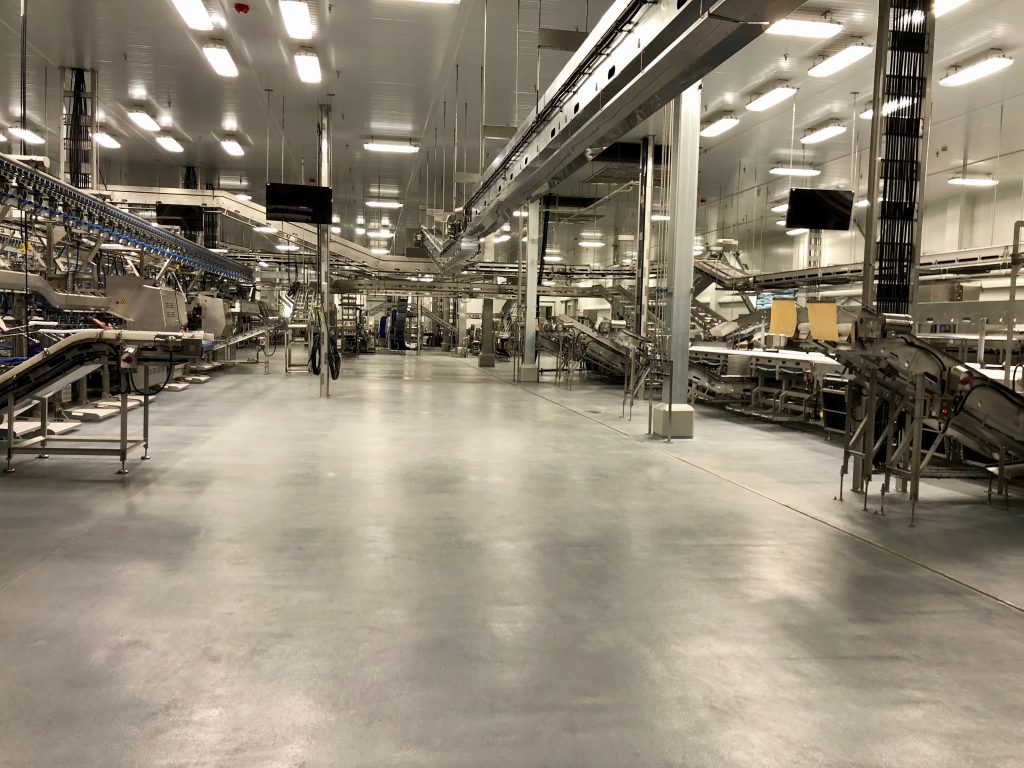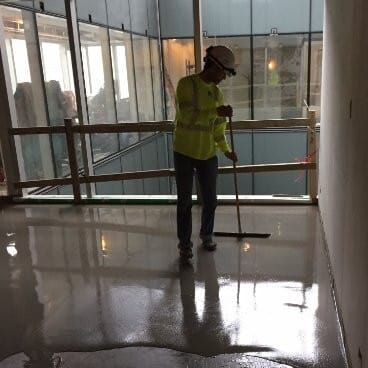
Factories and plants are incredibly important to Canada’s economy, and they have very particular flooring needs. Aesthetics are not on the top of the list, because the areas aren’t typically customer-facing. Instead, functionality is the key here. The flooring will need to be incredibly durable, and depending on the good being manufactured, may need to be impact resistant, acid resistant, water resistant and slip resistant. Quarry tiles have been a common choice for manufacturing sectors for years; they’re incredibly durable , however, are more expensive to install versus PUC. Recently, however, cementitious polyurethane or polyurethane cement (PUC) flooring solutions have become quite popular.
Both tile and PU Cement systems are incredibly durable; that’s why they’ve both become standards for factories and plants. This durability means they’re resistant to a wide variety of different potential variables. Both systems create tough flooring that’s resistant to impact and wear and tear. Both systems are also temperature-resistant, particularly useful in factories that use either high temperature furnaces or forges, or that super-cool items. Temperature resistance is equally useful in warehouses lacking central heating or cooling in the warm and cold months.
When it comes to ease of cleaning, the comparison is pretty interesting. The surface of the tile is incredibly easy to clean, and the grout joints between tiles provide a funnel for water to move through. Conversely, the same advantages these grout joints bestow can create problems; the joints themselves can accumulate contaminants that linger below the surface. PU Cement flooring, in contrast, is seamless, so there’s no spot for bacteria to accumulate. PU Cement surfaces are just as easy to clean as tile, but the water doesn’t have a natural drainage system. To mitigate this, it’s advised that you install a drainage system along with your PU flooring, so the water has somewhere to go when you’re done cleaning. Finally, PU cement flooring has an extremely high threshold for high temperature and pressure cleaning (the highest of all resinous flooring) versus tile.
PU Cement systems are becoming more popular because they do have a wide variety of distinct advantages over tile. The first is chemical resistant; while tile is durable, prolonged exposure to caustic materials will wear it down. PU Cement, conversely, was developed with chemical resistance in mind, and can endure very corrosive chemical spills; if you’ve installed an appropriate drainage system, even the clean-up of hazardous mess becomes much easier. The second main advantage of PU Cement systems is that it tends to be a bit easier to restore; PU Cement can be poured over many different flooring types, whereas tile needs to be removed and replaced to be restored.
There are so many different types of flooring solution, it’s difficult to compare them all. When evaluating what type of flooring you need for your factory or plant, the most important thing to do is write down all of the necessary qualities for your floor. How important is slip-resistance, and how often are you expecting spills? How often does heavy machinery pass over the floor? Are there devices that will subject the flooring to extreme temperatures? What types of chemicals are used, how difficult are they to clean, and how caustic are they? How much space is the flooring going to fill? Once you have the answers to these questions, consult your flooring contractors; you may need a new floor, but you may simply need a concrete repair company to fix up the existing flooring.

